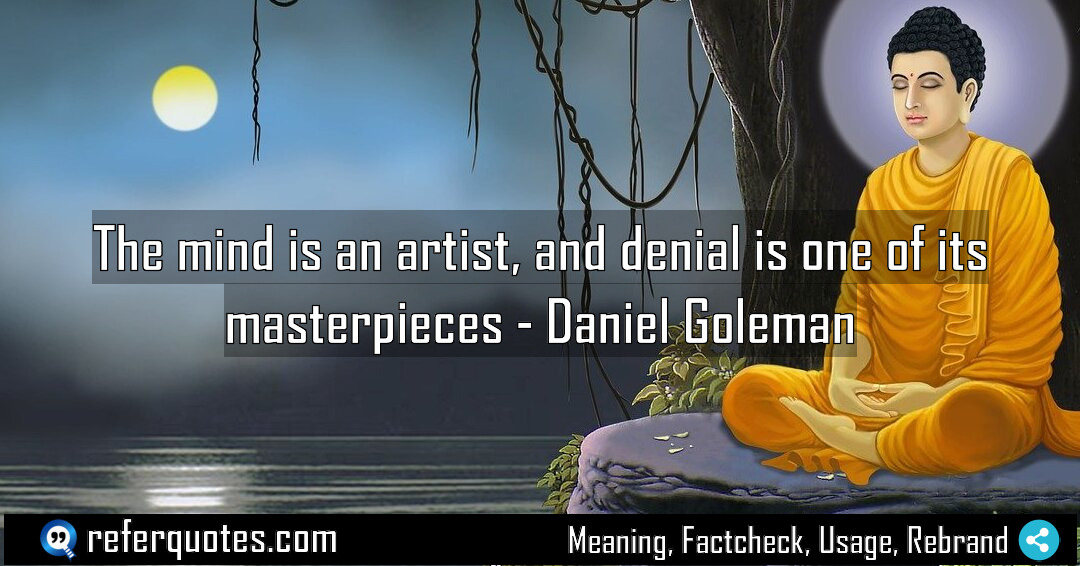You know, “The mind is an artist, and denial is one of its masterpieces” really gets to the heart of something profound. It’s about how our own brains, in an effort to protect us, can craft incredibly convincing false realities. We’re not just lying to ourselves; we’re creating art out of our avoidance.
Share Image Quote:Table of Contents
Meaning
At its core, this quote means that self-deception isn’t a clumsy error; it’s a sophisticated, creative act of the human mind.
Explanation
Look, we tend to think of denial as a simple refusal to see the truth. A blunt instrument. But Goleman is saying it’s the opposite. It’s nuanced. It’s creative. Our mind, this incredible artist, takes the messy, painful, complicated facts of our lives and it paints over them. It creates a more palatable narrative, a masterpiece of self-deception that allows us to function, to get out of bed in the morning, to preserve our ego. It’s not a bug in our system; it’s a feature. A brilliantly designed, and often problematic, feature.
Quote Summary
| Context | Attributes |
|---|---|
| Original Language | English (3668) |
| Category | Wisdom (385) |
| Topics | creativity (51), denial (11), mind (39) |
| Literary Style | metaphoric (105), observational (27) |
| Emotion / Mood | humorous (34) |
| Overall Quote Score | 88 (131) |
Origin & Factcheck
This insight comes straight from Daniel Goleman’s 1985 book, Vital Lies, Simple Truths: The Psychology of Self-Deception. It’s a key concept from his work before he became widely known for popularizing Emotional Intelligence. You sometimes see this quote misattributed to Freud or other psychologists, but its true home is right there in Goleman’s exploration of how the mind protects itself.
Attribution Summary
| Context | Attributes |
|---|---|
| Author | Daniel Goleman (125) |
| Source Type | Book (4032) |
| Source/Book Name | Vital Lies, Simple Truths: The Psychology of Self-Deception (61) |
| Origin Timeperiod | Modern (530) |
| Original Language | English (3668) |
| Authenticity | Verified (4032) |
Author Bio
Daniel Goleman is a psychologist and bestselling author whose journalism at The New York Times brought brain and behavior science to a wide audience. He earned a BA from Amherst and a PhD in psychology from Harvard, and studied in India on a Harvard fellowship. Goleman’s research and writing helped mainstream emotional intelligence, leadership competencies, attention, and contemplative science. He co-founded CASEL and a leading research consortium on EI at work. The Daniel Goleman book list includes Emotional Intelligence, Working with Emotional Intelligence, Primal Leadership, Social Intelligence, Focus, and Altered Traits.
| Official Website
Where is this quotation located?
| Quotation | The mind is an artist, and denial is one of its masterpieces |
| Book Details | Publication Year: 1985; ISBN: 9780743240156; Last edition: 1996 Harper Perennial; Number of pages: 288. |
| Where is it? | Approximate page from 1996 edition, Chapter 3: The Uses of Illusion |
